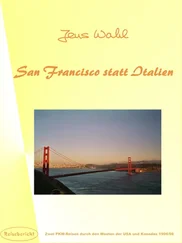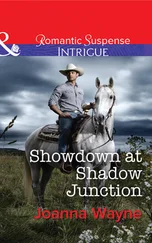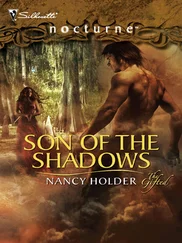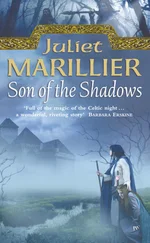Over dinner that evening—it was freeze-dried mashed potatoes and sickles of reddish soybeans, reconstituted to look like some nameless meat—Lana and Quinn stared at each other without speaking. What are you thinking? their wide eyes seemed to say. And then: What we have seen should remain a secret. Silently, without ever saying a word out loud, the two of them came to an agreement. And having never before in their lives had any reason to keep a secret, what followed then was their first lie. Lana, when questioned about the crack in her helmet, announced, without pause, without a single, doubtful blink, that she had cracked it on the sharp teeth of the disposal unit. Forrest Blau nodded, having said more than once that the exterior trash bin was no place for the children to play.
Later that night, as they lay in separate beds, their secret, along with their first, dreadful lie, occupied each of the children’s imaginations. It was as if—trying to coax themselves to sleep—they had already begun to dream of what else might happen, what other commandments they would have to soon outwit or try to evade.
It was seven days before they made their way back to the cave. It took that long for William, Quinn’s father and the colony’s only scientist, to repair Lana’s broken helmet and also for the children to finally accept that their lie had been believed. They took with them—in their gray side packs—a length of rope, a flashlight, and some MREs: things that were small enough to steal without their parents or any of their siblings noticing.
It took less time to find the cave than they had thought it would. Quinn tied the rope around a stack of heavy boulders and then, hand over hand, lowered himself down the hole into the glowing, verdant cave. The descent seemed to go on forever, and when finally his feet struck the grassy bottom, he pulled his helmet off, breathing the fragrant air with an urgent sense of relief. Lana followed, lowering herself with her long legs extended, falling the last few meters. She plucked her helmet from her shoulders, setting it down beside her pack, and then proceeded to unzip the thin outer lining of her silver space suit.
“What are you doing?” Quinn asked, but the girl did not answer. Instead, she stripped down to her yellow-and-white undergarments and then ran, barefoot, to the small pool of cerulean water, before gently climbing in.
“This is all I’ve been thinking about for the last several days,” Lana whispered, her head bobbing above the ripples he had made. “Come on. It’s warm!”
Quinn watched, mouth agape, and then quickly began to unzip his own space suit as well. There was a nervous throb in his chest and his hands. Everything felt like it was new, like they had somehow become some whole other species, some other kind of creatures—spectral animals emerging from centuries-old cocoons.
After they swam, they sat on the bank and shared a packet of partially dehydrated fruit. It was pink, the color of the palms of their hands. A bird as large as their heads landed near their discarded helmets. The children laughed, tossing the food pellets at the bird’s feet. Then they lay back in the grass, seeing the small world of the cave come alive—flowers unfolded, nameless insects whistled past, a lone, pinkish antelope hustled away after drinking at the water pool. Time passed slowly or not at all. There was the feeling within them that their lives—the world of the colony and the three domes in which they had always lived—could somehow be forgotten. Being here meant being adults, people who could think and do as they pleased. The place filled them with a sense of hope, a shadow world of entirely new possibilities, possibilities that the two of them could share, and that never needed to be spoken aloud.
Back at the colony, Lana had begun to answer her father back. At the dinner table that very evening, Forrest Blau asked where she had been; when she answered, whispering, “None of your business,” Forrest swung the white switch up and back and down across Lana’s hands so quickly that Quinn hadn’t had a chance to whisper a warning. Lana put her sore fingers against her chest, asked permission to leave the table, and spent the next few days silently pulling weeds from the rows of biologically modified corn. She would not make eye contact with Quinn no matter how hard he tried; back here, in the colony, outside of the cave, she hardly seemed like herself anymore.
One evening Quinn had a dream that a small bird was trapped inside his chest. He woke up trembling and found he couldn’t get back to sleep. He climbed down from the top bunk, trying not to disturb his two younger sisters as he snuck from their living quarters and out into the dimly lit passageway. For some time he stared out the observation windows at the order of bleak stars twinkling above. And then he heard a sound, something small and high-pitched, like a soft-throated whisper, exactly the kind of sound the bird in his dream had been making. He followed it, down and around Dome One to the intersection near Dome Three, which led to the library. The door to the library was open, and poking his head inside, he saw the shape of a girl—it was Lana, of course—sitting in one of the chairs, rocking back and forth; before her, on the video screen, was some blurry footage of two birds, a gray one and a blue one, mating. Their wings fluttered violently as one of them sang a trilling song. On the opposite screen there was another video—this one of horses, and on a third screen, a pair of leopards, each of them engaged in the act of copulation. Lana’s hair looked darker than it was and hung in her eyes. She seemed to be making a kind of sound, too, something too soft for Quinn to hear. The boy hurried back to his room, his face on fire, hurtling himself into bed as quickly as he could. He lay there awake until the morning lights shuddered on, his thoughts as unsteady as the moons spiraling above.
At the morning meal, Lana’s blond hair hung limply in her face, nearly dangling into her bowl of cereal. She rudely slurped up her food. Later, there was something wild, animalistic about the way she sank her teeth into a runny, ripe grapefruit, something that was both attractive and terrifying.
But surely Forrest Blau suspected something; each time Quinn passed him in one of the passageways, each time the older man gave him an order, each time their two glances happened to meet, it was tinged with a faint tension, a growing uncertainty. Later that morning, once the meal and dishes had been cleared, once the colonists had been assigned their tasks for the day—Quinn’s mother and father once more sent to pick pink apples in Dome Three, and then, as no less a commandment than from the pastor himself, to attempt another round of procreation or, as Forrest Blau put it, “to conjugate on behalf of all our futures”—Quinn knelt among the ripening soybeans, shuddering when Forrest Blau appeared, standing silent over his shoulder, watching the boy’s work with an air of serious interest. His long shadow made the back of Quinn’s neck go cold where it fell, just above his shoulder. The boy tried not to look up and so found himself gazing at the man’s large, gruesome-looking hands. The silence of the moment seemed to last forever, until, clearing his wide throat, Forrest spoke.
“It looks like the beans have finally come in.”
Quinn only nodded, then murmured, “Yes, Mr. Blau.”
Forrest Blau outstretched a wide, hairy hand, running his fingers along the length of a vine. He plucked a single bean, staring at it as if it were harboring some indefensible secret.
“God has a time for all things, my boy. It’s not for us to know or to question when or why.”
Читать дальше
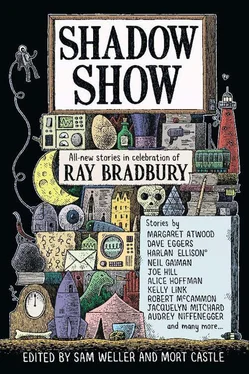


![Lord Weller - Ритера или опасная любовь [СИ]](/books/421202/lord-weller-ritera-ili-opasnaya-lyubov-si-thumb.webp)


